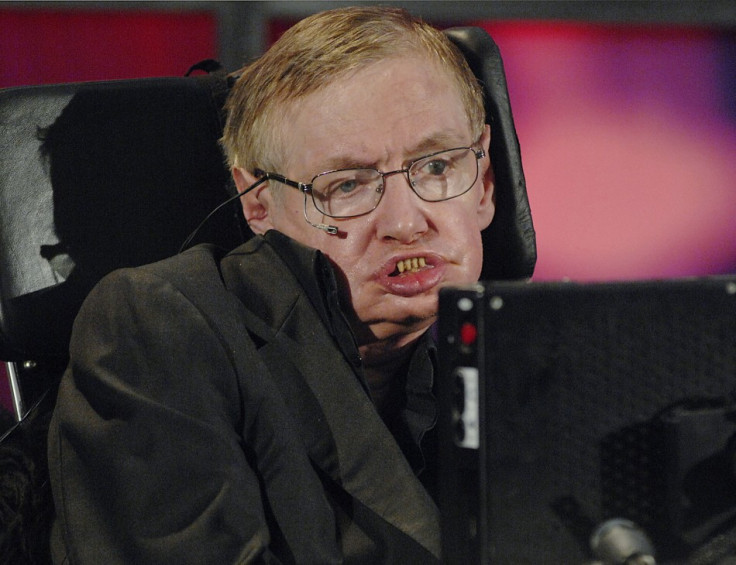Stephen Hawking just got dissed: His basic maths is wrong says scientist friend
Stephen Hawking's ideas about the origins of the universe challenged by one of his closest friends.

Ouch! Stephen Hawking, the world's most famous physicist, may not be as clever as everyone thinks – and that's from a fellow scientist he once called a friend.
Hawking, aged 75, sprung to prominence thanks to his ideas about the origins of the universe that captured the popular imagination. But now Professor Neil Turok, director of the Perimeter Institute in Canada, has questioned Hawking's vision of the Big Bang, when space, time and matter are thought to have burst into existence as we know it.
According to the Sunday Times, Prof. Turok has now published research suggesting that the basic maths behind Hawking's views is incorrect and it is back to drawing board on the origins of the universe.
"Our research implies that we either should look for another picture to understand the very early universe, or that we have to rethink the most elementary models of quantum gravity," said Job Feldbrugge, one of Turok's co-authors.
Hawking is known for his contributions to the fields of cosmology, general relativity and quantum gravity, particularly in the context of black holes. With English mathematical physicist Roger Penrose, Hawking showed that Einstein's General Theory of Relativity implied space and time would have a beginning in the Big Bang and an end in black holes.
Hawking's 1998 book A Brief History of Time became a bestseller and sold more than 10 million copies in 20 years. It was on the Sunday Times bestseller list for more than four years - but it is one of the least finished books by readers.
However, in a paper entitled No Smooth Beginning for Spacetime, Turok and his colleagues re-examined Hawking's work using new mathematical techniques to show that the energies within such a universe would be so wild and fluctuating that it would immediately destroy itself.
The maths Turok used was not around when Hawking produced his theories, he said.
Turok, who worked with Hawking at Cambridge, offered a new theory for the universe: "the Big Bounce". This suggests the universe is locked in a perpetual cycle of big bangs in which it expands, then contracts to a tiny point before exploding outwards again.
The debate over the orgins of the universe has escalated in recent weeks. At the beginning of June, Stephen Hawking and 32 top physicists penned an angry letter in response to an article published in Scientific American. The letter defended one of the world's leading theories on how the universe began and expressed the physicists' "categorical disagreement" with several statements made in the article.
Hawking and his colleagues' letter was in response to the article published in early February, which heavily criticised the inflation theory - that the universe expanded like a balloon just after the Big Bang. In the article originally titled Pop Goes the Universe, physicists Anna Ijjas, Paul J Steinhardt, Abraham Loeb went so far as to deem that the theory "cannot be evaluated using the scientific method".
Stephen Hawking on the final frontier
In recent years Hawking has evangelicised that mankind must explore new world's and that Planet Earth is doomed.
At a recent science conference he reiterated his belief that humans need to explore space to avoid the dangers of our own finite world. And then he described how humans could one day travel on a beam of light, harnessing the power of Einstein's theory of relativity to reach mind-bogglingly distant planets.
"When we have reached similar crises in our history, there has usually been somewhere else to colonize. Columbus did it in 1492 when he discovered the New World. But now there is no new world. No Utopia around the corner," Hawking said.
© Copyright IBTimes 2025. All rights reserved.






















